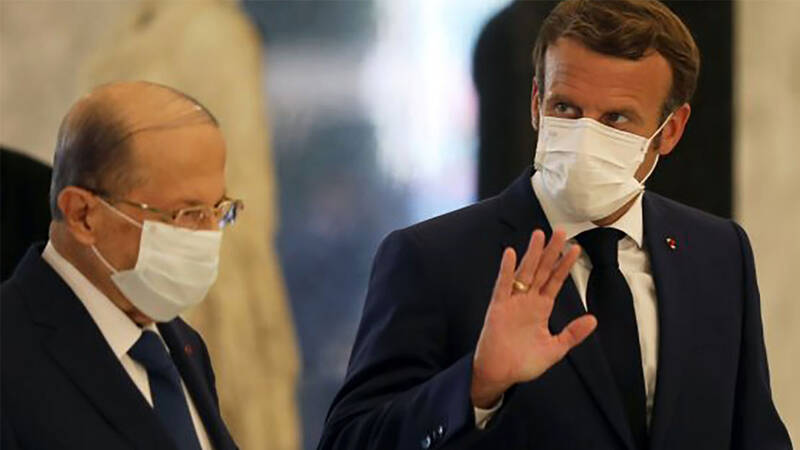As the most indebted country in the world, Lebanon has 90 billion dollars in foreign debt, which is equivalent to 170% of its GDP. Under such circumstances, Lebanon is facing the maturity of the loans it has already received. The Lebanese government has explicitly stated that it is unable to pay its financial debts and is seeking new loans. This situation has led institutions and companies lending to Lebanon to offer economic advice to the country in order to repay its debts. Those proposals include, increasing gasoline taxes, reducing staff salaries, reducing welfare obligations such as pension insurance, and so on.
In October 2019, the Lebanese government moved to implement some of the mentioned recommendations and sought to tax social media, including WhatsApp. The Lebanese government’s move was met with public outcry, which continues up to now. The Lebanese government’s inability to repay loans on the one hand, and lack of a way out of the economic stalemate on the other hand, have caused the Lebanese currency to lose more than 80 percent of its value against the dollar, which has intensified protests in Lebanon.
Some 45 percent of the population live below the poverty line due to the economic crisis in Lebanon, the unemployment rate is above 35 percent, and the International Monetary Fund has predicted negative economic growth for Lebanon. In the political arena, the Lebanese economic crisis led to the defeat of Hassan Diab’s government, which came to power in 2019 with the promise of an economic rescue package and repayment of loans. Since then, Lebanon has been without a government for more than a year. Under such circumstances, Lebanon is facing with quarantine due to the Coronavirus, the negative effects of the civil war in Syria and the influx of refugees, the severance of trade relations, and the imposition of some US economic sanctions against Hezbollah in Lebanon.
Meanwhile, trans-regional actors such as France, the United States and, to a lesser degree, Britain see structural reform as Lebanon’s way out of the crisis. This means that the international financial institutions, which are controlled and influenced by the West, follow the demands and reform programs of the United States and France. In addition to imposing sanctions on Lebanese economic entities that cooperate with Hezbollah, Western countries have designed reform programs that would weaken Hezbollah.
For example, in the month of Azar 1398 (November/December 2019), the US Treasury Department imposed sanctions on several Lebanese Hezbollah affiliates, such as Nazem Said Ahmad, and Saleh Asi Toni Saab, under the pretext of money laundering and financial aid to Hezbollah in Lebanon. At the first glance, it may seem that the United States has only imposed sanctions on a few people and has no particular effect on the Lebanese economy, while it is not the case; because the Ministry of Treasury has threatened to impose sanctions on any individual or institution that cooperates with Hezbollah in Lebanon. This means that Lebanese institutions should either refuse to cooperate with Hezbollah members or are subject to US sanctions. For example, in the month of Shahrivar 1396 (August/September 2017), the United States imposed sanctions on Jammal Trust Bank, which has 22 branches in Lebanon.
On the other hand, the United States has pressured other countries to list Hezbollah in Lebanon as a terrorist group. For example, Britain, which had previously listed only Hezbollah’s military wing as a terrorist organization, listed the entire Hezbollah organization as a terrorist organization on Dey 27 1398 (January 17 2020); a measure that seems to be taken by other European countries as well. Introducing Hezbollah as a terrorist group at the European level puts financial exchanges with Hezbollah, and Lebanon in particular, in a particularly difficult position.
In addition, Lebanon is pushing for new loans due to a 28 billion dollars budget deficit in 2020; however, the International Monetary Fund makes the grant of a new loan conditional on the acceptance of the terms of that international body; such as liberalization of the national currency against foreign currencies, the increase in electricity prices and transparency in contracts, the increase in taxes, the structural reform of the Lebanese budget, the dissolution of some banks and the merger of others, and merit-based appointments. The latter condition leads to the abolition of the Taif Agreement, which considers the basis for the division of power in Lebanon to be ethnic-religious.
Meanwhile, Joe Biden’s administration, in coordination with France, has been pushing for a structural reform plan in Lebanon since taking office. The Biden administration supports Emmanuel Macron’s policy in Lebanon, while maintaining economic pressure and sanctions on Hezbollah. The purpose of this policy is to try to implement the structural reforms requested by the International Monetary Fund and the United States to lend to the Lebanese government in order to prevent the economic collapse in the country. Another objective of this policy will be to intensify efforts to remove Hezbollah from the political equation in Lebanon. However, it is clear that Lebanon will face serious public protests by accepting those conditions. Also, receiving loans from international institutions again will only make Lebanon more indebted and will make its economic condition worse.










0 Comments